Inflammation
Inflammation is an important defense reaction of the body to tissue damage. Their job is to remove the damaging stimulus and repair damaged tissue. An insect bite or a small cut - these are stimuli that cause inflammation in our body. Inflammation can also affect organs - such as the stomach, intestines, or lungs.
The mostly useful inflammatory reaction can, however, also be harmful: whenever it becomes chronic, is excessively strong or is directed against healthy tissue. You can find out everything about inflammation, its possible causes and treatment options here.
What is inflammation?
Inflammation is the body's defense mechanism against harmful organisms or foreign substances. The goal of an inflammatory reaction is to specifically remove the harmful influence from the body. Defective endogenous cells can also be removed by inflammatory reactions in order to heal the tissue.
Inflammation in the body - also called inflammation in medical jargon - consists of a multitude of intertwined, finely tuned immunological processes. Inflammation is part of the arsenal of the body's immune system.
However, if inflammatory reactions get out of their natural balance - or if certain areas of the body are irritated for a longer period of time - serious consequences can arise: Excessive immune reactions can also affect healthy body tissue, or chronic inflammatory diseases develop.

Signs of inflammation
Typical signs of inflammation are usually expressed in the form of reddening of the skin, increased local warmth and swelling of the affected parts of the body. In most cases, the function is then also restricted. Inflammatory reactions are usually accompanied by pain.

Inflammation from A to Z.
A.- abscess
- acne
- Acute bronchitis
- Allergic rhinitis
- Alveolitis
- Inflammation of the pancreas
- Conjunctivitis
- Cystitis
- Appendicitis
- Blood poisoning
- Lyme disease
- Chronic bronchitis
- Dermatomyositis
- Type 1 diabetes
- EHEC
- Encephalitis
- cold
- boil
- Inflammation of the gallbladder
- Ear canal inflammation
- Jaundice
- Guillain-Barre Syndrome
- Shingles
- Ureteritis
- Urethritis
- Urinary tract infection
- Hashimoto's thyroiditis
- hepatitis
- Herpes
- Pericarditis
- Myocarditis
- Japanese encephalitis
- Laryngitis
- Maxillary sinus infection
- Inflammation of the bones
- Cirrhosis of the liver
- Legionnaires' disease
- lung infection
- Lupus erythematosus
- Abdominal influenza
- Stomach ulcer
- Inflammation of the stomach lining
- Tonsillitis
- meningitis
- Otitis media
- Graves disease
- ankylosing spondylitis
- Crohn's disease
- multiple sclerosis
- aching
- Inflammation of the nail bed
- Nail psoriasis
- Sinus infection
- Eczema
- Pelvic inflammation
- Inflammation of the kidneys
- Ear infection
- Parotitis
- Perioral dermatitis
- Polymyositis
- Psoriatic arthritis
- Sore throat
- Reactive arthritis (Reiter's disease)
- Reflux disease
- Irritable bowel syndrome
- Rheumatoid arthritis
- Inflammation of the thyroid gland
- Bursitis
- Snapfinger
- sniffles
- Psoriasis
- Psoriasis - scalp
- Tendinitis
- Optic nerve inflammation
- Lateral cord angina
- sunburn
- Inflammation of the salivary glands
- Spondyloarthritis
- Staph infection
- Frontal sinus infection
- Strep infection
- De Quervain's tendovaginitis
- Vasculitis
- Warts
- Soft tissue rheumatism
- Wound infection
- Zika virus infection
- Celiac disease
Acute and chronic inflammation
Doctors divide inflammation into different categories depending on how it has developed over time:
Acute inflammation: It is usually the body's first reaction to a damaging influence. Acute inflammation usually occurs suddenly - but usually heals within 2 to 14 days. Examples are conjunctivitis, tonsillitis, nail bed inflammation or cystitis.
Peracute inflammation: It usually starts very suddenly and violently. In certain cases, peracute inflammation even leads to death within a few days. The reason for this is usually an excessive immune reaction that causes lasting damage to the organism. But even if the immune system is weakened due to illness or medication, this type of inflammation can be life-threatening.


Subacute inflammation: This type of inflammation starts slowly. The course is usually mild, but healing often takes longer. The duration is usually two to four weeks. An example of subacute inflammation is virus-induced Quervain thyroid inflammation (Thyreoiditis de Quervain - "silent thyroiditis").
Chronic inflammation: Chronic inflammation - or "long-lasting inflammation" - usually leads to a gradual replacement of diseased cells with connective tissue in the inflamed area. The inflamed tissue is broken down and gradually healed through scarring. Chronic inflammation can, depending on the location and tissue, permanently limit the corresponding body function.
Primary chronic inflammation: It occurs gradually and manifests itself as symptoms that appear slowly or in bursts. The duration of an inflammatory flare-up usually exceeds four weeks, and healing usually does not occur. Examples of primary chronic inflammation are the increasingly progressive clinical pictures rheumatoid arthritis, multiple sclerosis, type 1 diabetes or Crohn's disease.
Secondary chronic inflammation: It usually occurs after an acute inflammation that has not completely healed. The healing process is then usually protracted. Examples of such chronic forms are, for example, chronic bronchitis, chronic myocarditis, gastric ulcer (ulcer) or chronic tonsillitis.


Recurrent inflammation: This refers to inflammatory reactions that occur in bursts or phases (inflammatory burst) and alternate with symptom-free intervals. This is the case, for example, with chronic gallbladder inflammation (cholecystitis) with gallstones.
What causes inflammation?
Tissue-damaging causes of inflammation are manifold. Infections with bacteria, viruses, fungi or even parasites (so-called pathogens) can trigger inflammation.
Specific inflammation: It is triggered by a very specific pathogen (pathogen-related inflammation) and is characterized by disease-specific tissue damage. For example with tuberculosis, leprosy or syphilis - the damage of which is very characteristic of the respective clinical picture.
Non-specific inflammation: This form of inflammation is directed "against everything foreign to the body". Against bacteria, foreign bodies, particles or other harmful molecules. Foreign substances are enclosed (phagocytosed) by the phagocytes of the immune system (macrophages) and broken down there.
Metastatic inflammation: It occurs when pathogens migrate from a primary focus to organs further away and cause further inflammation there. In such a case, the risk of blood poisoning (sepsis) also increases.
Bacterial inflammation: The inflammation is triggered by bacteria.
Viral inflammation: Viruses cause inflammation.


Physical stimuli such as excessive heat (“burns”), cold (“frostbite”) or the sun (“sunburn”) can cause inflammation. In addition, foreign bodies - such as splinters of wood - can penetrate the body from the outside. They are then enclosed in pus and eventually removed from the body.
Bruises, strains or bruises also lead to local inflammatory reactions. Likewise, pollen, certain foods or animal hair can activate the immune system and lead to allergic inflammation in the body and in the mucous membranes.
Doctors also classify inflammation according to its pattern of spread in the body:
Local inflammation, also called localized inflammation. It is limited to a circumscribed, delimited tissue area. Examples are cuts, splinters of wood or minor wounds.
Generalized inflammation: Here the inflammation usually affects several parts of the body or organs. In severe cases, the entire body can be affected.
Autoimmune reactions are a special case - they too lead to inflammation. In this case, immune cells attack the body's own structures rather than foreign ones. The resulting inflammatory or immune responses damage healthy tissue. In many cases, the affected tissue or cells lose their functionality after a certain period of time (untreated).

Course of inflammation: what happens in the body when there is inflammation?
First, a foreign organism, a foreign substance or tissue damage triggers a stimulus that activates the immune system. Affected or neighboring cells in the region around the inflammation site change their metabolic behavior - mostly mediated by the so-called transcription factor NF-κB. They now produce specific proteins and metabolic modulators that initiate and regulate the inflammatory reaction.
Among them are inflammation mediators (cytokines), which cause the inflammation to spread and “attract” (recruit) freely circulating immune cells. The inflamed tissue also produces certain substances (including prostaglandins and histamine) that allow other immune cells (neutrophils, macrophages, mast cells) to migrate and increase blood flow. The walls of the blood vessels become temporarily more permeable in order to make it easier for the immune cells to access the site of inflammation.
In addition, so-called acute phase proteins are released into the blood - including the C-reactive protein, certain interleukins, fibrinogen or ferritin. At the same time, the bone marrow produces more blood platelets (thrombocytes) and white blood cells (leukocytes), which can be detected in the laboratory.
In more severe cases - for example in the case of extensive inflammation such as severe sunburn or large abrasions - a fever can also set in. It is triggered by certain signaling molecules.
Treat inflammation
There are a number of medications available to doctors to alleviate (excessively) strong inflammatory reactions. Cortisone has an extremely strong anti-inflammatory effect.
Doctors always use such so-called glucocorticoids when the immune system is to be specifically suppressed (immunosuppression). Due to their strong effects and their side effects, however, they are usually only administered in special cases, for a limited time and under medical supervision.
In addition, “non-steroidal anti-inflammatory drugs” - also known as non-steroidal anti-inflammatory drugs (NSAIDs) - are widely used. Examples are acetylsalicylic acid, ibuprofen, indomethacin, diclofenac or the active ingredient group of oxicams. They inhibit certain enzymes (cyclooxygenases) and thereby prevent the formation of inflammatory messengers (prostaglandins).
They are usually available as tablets. In the case of pain and swelling in the joints, tendons and muscles, ointments or gels with the corresponding active ingredients can also be used.
Disinfecting or anti-inflammatory agents from the home or natural pharmacy such as zinc oxide, arnica, calendula, chamomile or sage can be used as a support.
Where can inflammation occur?
Inflammation can occur in many places in the body. In principle, any tissue can become inflamed. If only certain delimited body areas or organs are affected, one also speaks of localized inflammation.
Inflammation of the nervous system
Inflammation of the central nervous system is the specialty of neurologists. The most important clinical pictures include inflammation of the brain tissue (encephalitis), inflammation of the meninges (meningitis), inflammation of the bone marrow (osteomyelitis) or the rare inflammation of the nerves (neuritis).


- Guillain-Barre Syndrome
- Japanese encephalitis
- Inflammation of the bones
- Neuroborreliosis
- Optic nerve inflammation
- Zika virus infection
Inflammation of the respiratory system, airways and ears
Inflammation of the respiratory organs, the respiratory tract and the ears fall into the specialty of ENT doctors - or "ear, nose and throat doctors". They specialize in the medical care of this area of the body - for example in the case of inflammation in the area of the ears (otitis), the nasal mucosa (rhinitis) or the larynx (laryngitis).
They are also the first point of contact if you suspect serious lung diseases - such as pneumonia or a rare inflammation of the alveoli (alveolitis).


- Allergic rhinitis
- Alveolitis
- cold
- Laryngitis
- Maxillary sinus infection
- Legionnaires' disease
- Tonsillitis
- Otitis media
- Sinus infection
- sniffles
- Lateral cord angina
- Frontal sinus infection
Inflammation of the digestive organs
Inflammatory diseases of the gastrointestinal tract are one of the core competencies of a gastroenterologist.They specialize in treating inflammation of the stomach (gastritis), bowel (enteritis), large intestine (colitis), or pancreas (pancreatitis). The investigation of a suspected inflamed esophagus (esophagitis) also falls into this area of expertise.


- Appendicitis
- Abdominal influenza
- EHEC
- Inflammation of the pancreas
- Reflux disease
- Crohn's disease
- Celiac disease
- Irritable bowel syndrome
Inflammation of the liver, kidneys and urinary tract
There is also inflammation that affects other internal organs - for example, inflammation of the liver (hepatitis), inflammation of the kidneys (nephritis) or inflammation of the urethra (urethritis).


- Cystitis
- Inflammation of the gallbladder
- Jaundice
- Urethritis
- Urinary tract infection
- Hepatitis A
- Hepatitis B.
- Hepatitis C.
- Hepatitis E.
- Cirrhosis of the liver
- Pelvic inflammation
- Inflammation of the kidneys
Inflammation of the skin
Skin disorders fall under the specialty of dermatology. Inflammation of the skin is summarized under the collective term dermatitis. This includes a variety of forms of illness, ranging from sunburn to shingles (herpes zoster) to neurodermatitis.


- abscess
- acne
- boil
- Shingles
- Herpes
- Perioral dermatitis
- Psoriasis
- sunburn
- Warts
Inflammation of the heart and the cardiovascular system
Inflammation within the cardiovascular system is the specialty of cardiologists. You are the first point of contact if you suspect an existing heart muscle inflammation (myocarditis). They also specialize in inflammation of the blood vessels (vasculitis) and inflammation of the pericardium (pericarditis).
![]()


More inflammation
In addition to the organs themselves, the supporting apparatus can also be affected by inflammatory reactions. For example, inflammation of the joints (arthritis), tendons (tendinitis) or muscles (myositis).


- Dermatomyositis
- ankylosing spondylitis
- Polymyositis
- Psoriatic arthritis
- Reactive arthritis (Reiter's disease)
- Bursitis
- Snapfinger
- De Quervain's tendovaginitis
- Soft tissue rheumatism




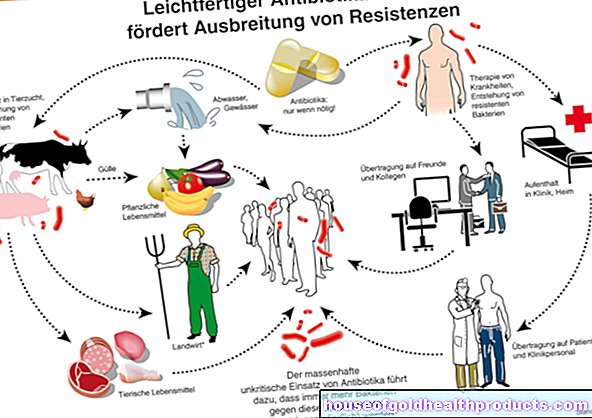
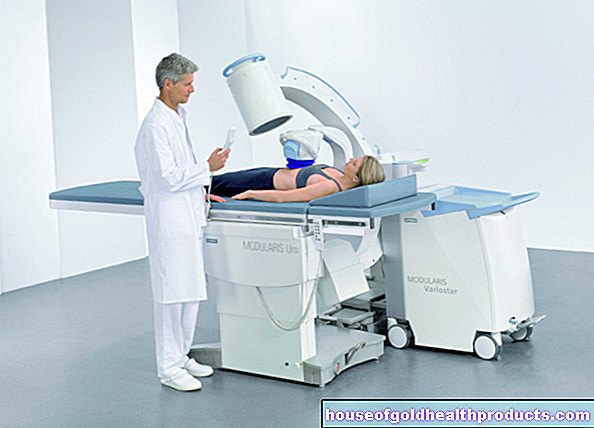
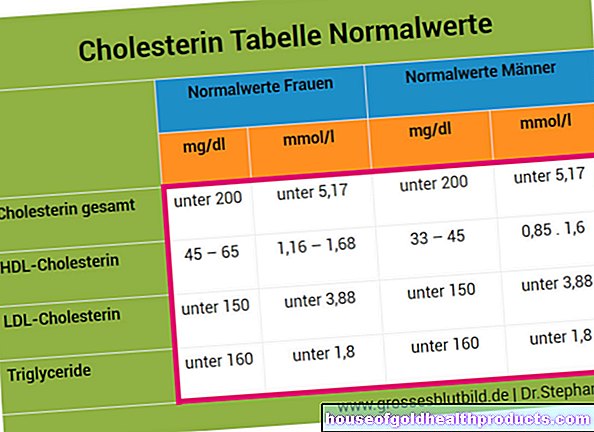


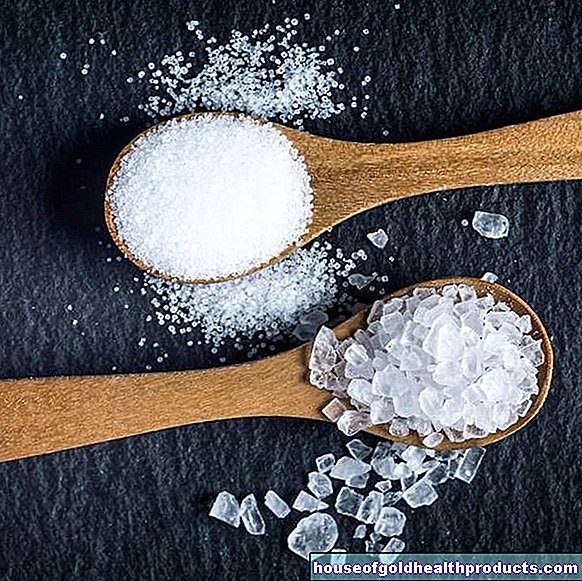
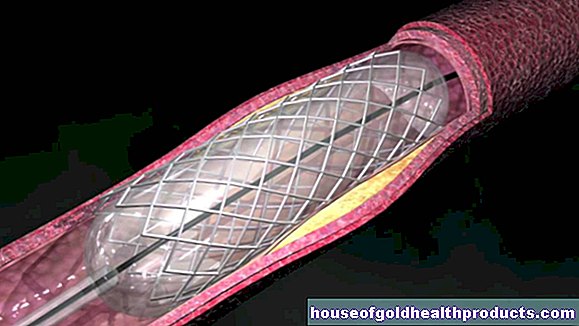



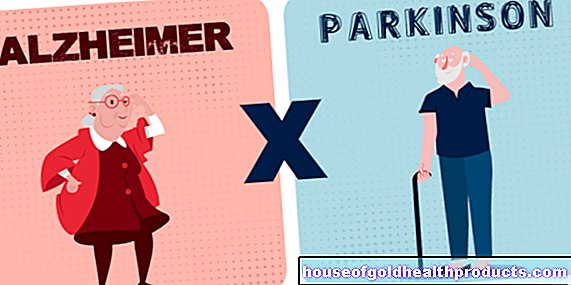

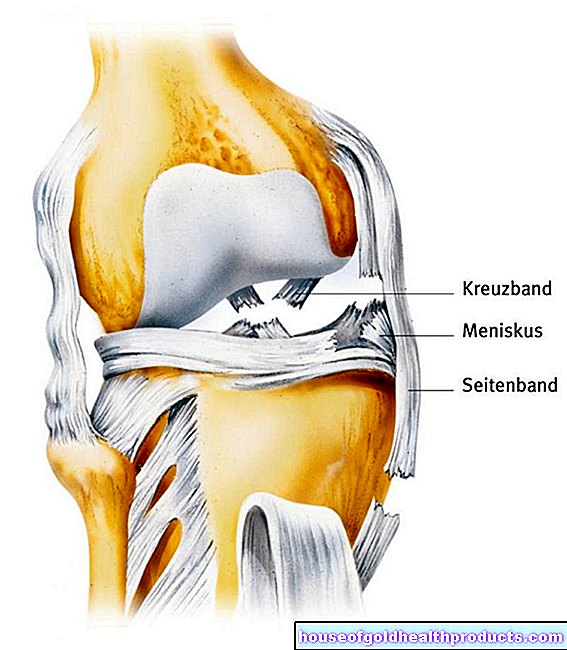

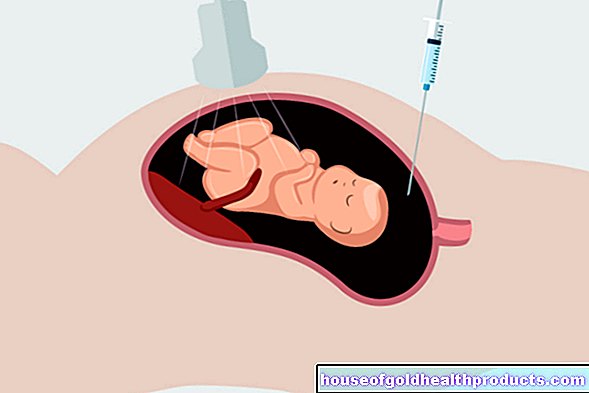
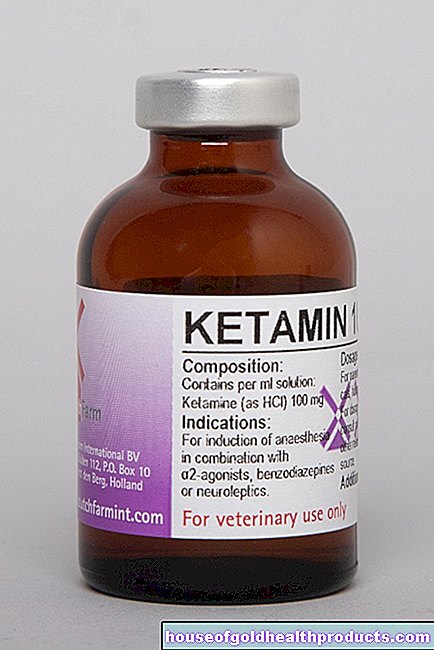

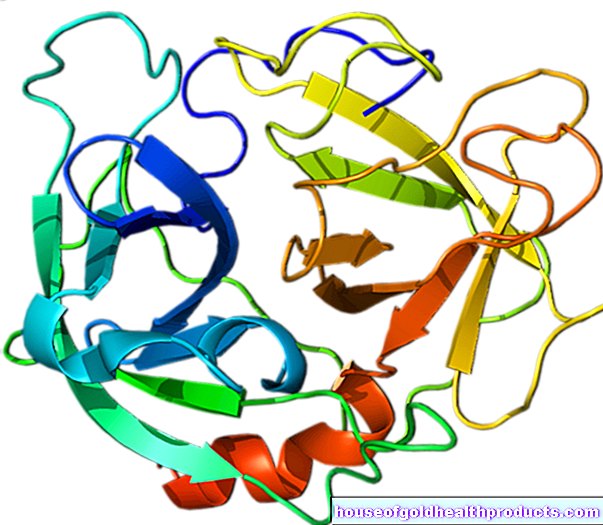
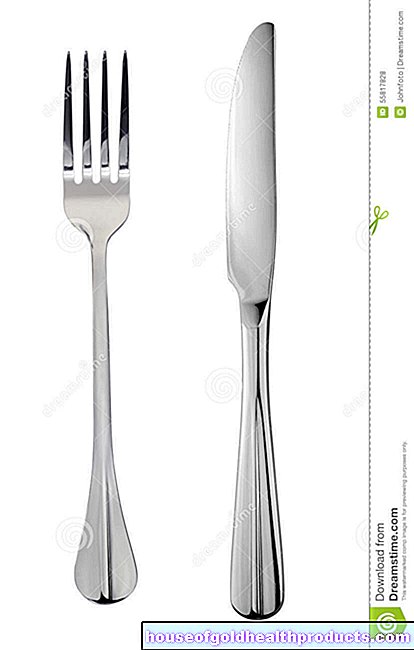





.jpg)

